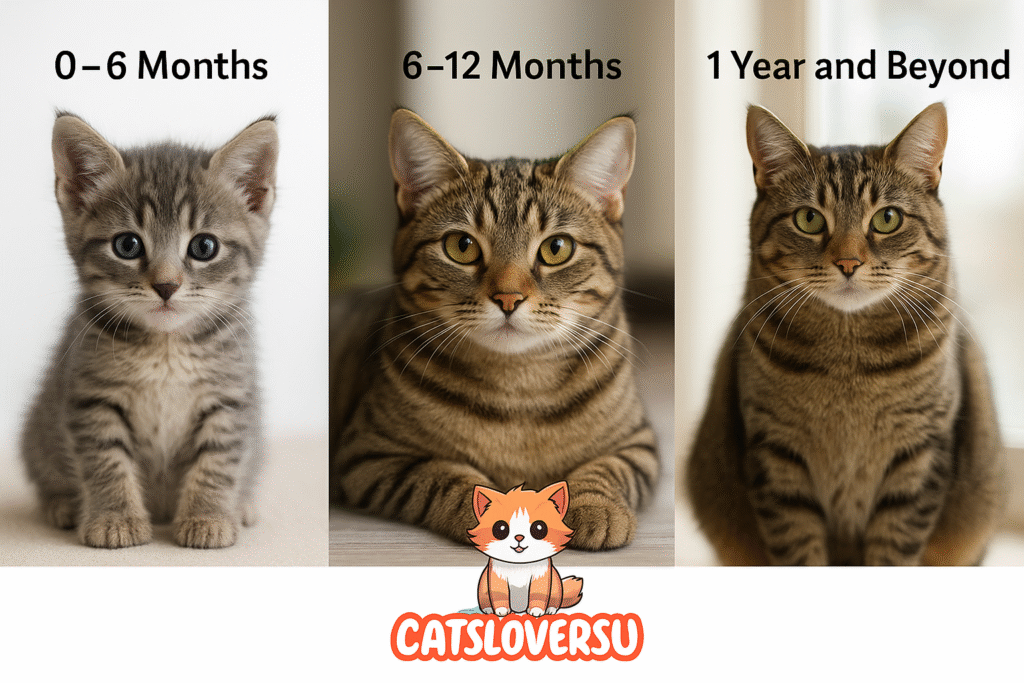🔎 Introduction: Why Cat Behaviour Matters
Cats may be independent animals, but their behaviour is anything but random. From purring to scratching, every action your cat takes reflects their needs, emotions, and environment. Whether you’re a new cat owner or a seasoned feline enthusiast, this guide will help you understand what your cat is trying to tell you — and how to respond appropriately.
🧠 Understanding Cat Behaviour by Life Stage
🐱 Kitten Behaviour (0–6 Months)
Kittens are naturally curious and playful. They learn social boundaries by play-fighting and exploring their surroundings. During this time, their behaviour is heavily shaped by socialization, especially between 3–9 weeks of age.
Common behaviours:
- High energy and exploration
- Chasing, pouncing, and biting during play
- Developing trust with humans and other animals
🐾 Teenage & Adolescent Behaviour (6–12 Months)
This stage can feel like raising a feline teenager. Cats begin to assert independence, test boundaries, and display hormonal behaviours like spraying or excessive vocalization if not spayed or neutered.
What to expect:
- Increased restlessness or mischief
- Sudden personality shifts
- Territorial marking or calling
😼 Adult Cat Behaviour (1 Year and Beyond)
Most cats begin to settle into a routine. Their personality stabilizes, and they often become more affectionate or more independent, depending on their breed and early development.
Typical adult behaviours:
- Sleeping 12–16 hours a day
- Guarded affection or cuddling on their own terms
- Established litter box and scratching habits
Male vs Female Cat Behaviour
♂️ Male Cats
Unneutered males are more likely to roam, spray, or act aggressively. After neutering, they generally become calmer.
Traits:
- Territory-driven
- Playful, sometimes rough
- Less affectionate before neutering
♀️ Female Cats
Female cats may be more nurturing and reserved. If not spayed, they can go into heat every few weeks, leading to loud vocalizations and affectionate behaviour.
Traits:
- Vocal during heat cycles
- Maternal instincts if they’ve had kittens
- Generally more home-bound than males
✂️ Behaviour Changes After Spaying or Neutering
Immediate Post-Surgery Behaviour
Your cat may be groggy, avoid food, or hide more than usual for 24–72 hours after the procedure. Ensure they have a quiet, comfortable space.
Long-Term Behavioural Shifts
Most neutered/spayed cats become less aggressive and more relaxed. Spraying, yowling, and roaming often decrease or stop entirely.
Benefits:
- Reduces unwanted mating behaviour
- Promotes calmness
- May extend lifespan
😾 Common Behavioural Problems in Cats
Aggression or Biting
This could stem from fear, overstimulation, territoriality, or medical pain. Always rule out health issues before assuming it’s behavioural.
Litter Box Avoidance
Cats are clean by nature. Avoidance can signal stress, illness, or dislike of the litter box’s cleanliness or location.
Changes in Personality
Sudden withdrawal or hiding may indicate anxiety, illness, or environmental stressors like moving, new pets, or loud noise.
🧴 Behavioural Solutions and Recommended Products
Calming Aids & Behaviour Sprays
Products like pheromone sprays (e.g., Feliway) can reduce stress-related behaviour like scratching, meowing, or spraying.
Environmental Enrichment
- Scratching posts, cat trees, and puzzle feeders
- Designated playtime using toys that mimic prey
- Predictable feeding and sleeping routines
👩⚕️ When to See a Cat Behaviour Specialist
If your cat’s behaviour is dangerous, chronic, or distressing — and not improved by training — consult a certified feline behaviourist or your veterinarian. Conditions like hyperthyroidism or urinary tract infections can mimic behavioural issues.
📚 Final Thoughts
Every meow, twitch, or tail flick is your cat’s way of communicating. By learning to interpret their behaviour, you strengthen your bond and create a safe, nurturing environment for them. This guide offers a foundation, but remember — your cat is unique, and so is their behaviour.
✅ FAQ: Cat Behaviour
Q: Why is my cat suddenly aggressive?
A: Changes in routine, fear, or medical conditions like pain or hyperthyroidism.
Q: Do neutered cats still spray?
A: Rarely. Spraying usually stops within months of neutering.
Q: How do I calm my anxious cat?
A: Try pheromone diffusers, routine changes, and safe spaces.
nterested in how breed affects behavior? Discover the unique traits of the White Russian Cat
more useful links:

